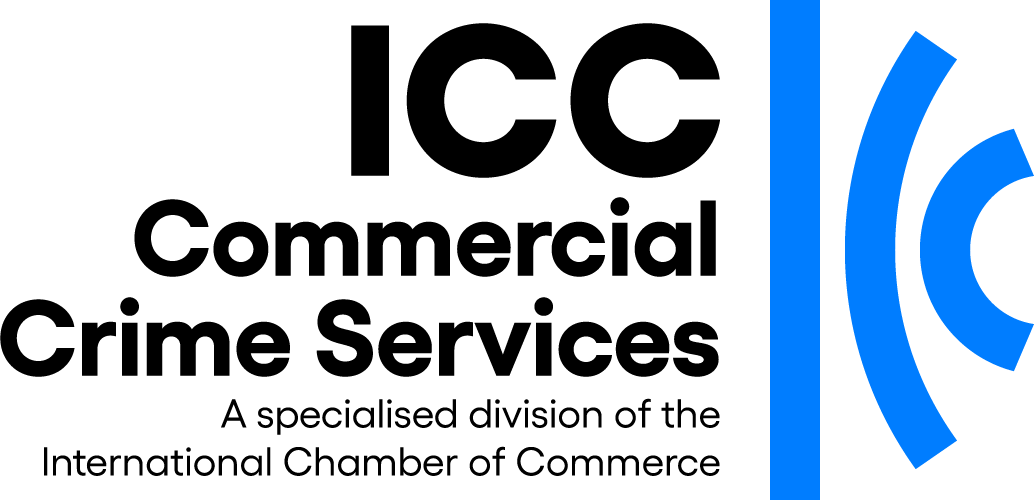
 ICC Commercial Crime Services (CCS) recently hosted the organization’s 9th annual Economic Crime lecture. The event was held in London, on 16 June, 2009 in conjunction with Lawrence Graham, Solicitors. This year’s keynote speech was delivered by Paul Evans of the UK’s Serious Organized Crime Agency (SOCA).
ICC Commercial Crime Services (CCS) recently hosted the organization’s 9th annual Economic Crime lecture. The event was held in London, on 16 June, 2009 in conjunction with Lawrence Graham, Solicitors. This year’s keynote speech was delivered by Paul Evans of the UK’s Serious Organized Crime Agency (SOCA).

ICC Commercial Crime Services (CCS) recently hosted the organization’s 9th annual Economic Crime lecture. The event was held in London, on 16 June, 2009 in conjunction with Lawrence Graham, Solicitors. This year’s keynote speech was delivered by Paul Evans of the UK’s Serious Organized Crime Agency (SOCA).
Mr Evans, SOCA’s Director Intervention, offered a unique glimpse into the measures SOCA uses to destabilise criminals, reduce the harm they cause, and separate them from the proceeds of crime. Established in 2006, SOCA uses intelligence and enforcement activity to detect, disrupt and dismantle organised criminal networks in the UK, and protect individuals and communities.
Examining the popular scourge of mass marketing fraud, such as lottery scams and advance fee frauds, Mr Evans described an innovative approach SOCA adopted to fighting this particular type of financial fraud. Working closely with other interested parties, SOCA intercepted letters from duped consumers responding to a mass market fraud. After closing down the address being used by the fraudsters, SOCA then wrote a response letter to each of the victims explaining they had been tricked, and returning their ‘investment’. The letter advised the taken consumers to think carefully before responding to unsolicited mail of the same type in the future and provided contact details for further advice and guidance.
This approach not only negated the efforts of organised crime, but at the same time increased awareness of the very real threat of financial fraud.
With the Office of Fair Trading estimating that organised crime costs UK victims approximately £3.5 billion annually, SOCA has adopted an aggressive and scientific approach to this significant threat.
“Building knowledge,” said Mr Evans, “is SOCA’s principle strategic priority and will underpin everything else we do. Information is the key to removing criminal assets, increasing the risk to criminals, developing partnerships and building capabilities. By investing in knowledge we improve our understanding, and once we understand what criminals want and how they work, we can prioritise the right tasks for action and deploy the most effective and proportionate tools available,” he added.
Understanding and tracking criminal behaviour is key to SOCA’s line of attack. At the forefront of any financial fraud is the pursuit of money, and with money comes the temptation to spend it; to acquire assets, either to live it up or plan for the future, or simply to legitimise it. The moment criminals do this their risk of detection increases. With SOCA’s impressive access to records regarding individuals involved in organised crime, the organisation can spot changes in lifestyle and behaviour that can become the catalyst for a more detailed investigation. Once assets with dubious provenance are identified, SOCA then has a powerful array of tools at its disposal to seize them.
Outlining some of these tools, and noting that SOCA’s international network currently comprises 140 officers in 41 countries who work closely with local authorities amongst its 3,200 staff, Mr Evans said the agency relies heavily on partnerships with other organisations. In particular, he mentioned the creation of the Organised Crime Partnership Board (OCPB), through which the agency, HM Revenue & Customs, the UK Border Agency and the Police have put in place systems for sharing details of the organised criminal groups known to each group, and agreed a series of joint programmes to tackle them.
Supporting this, it has at its disposal legislation such as the Proceeds of Crime Act 2002, Serious Organised Crime and Police Act 2005, and Serious Crime Act 2007, which are proving useful tools alongside SOCA’s merger with the Assets Recovery Agency last year that now puts it at the forefront of recovering criminal assets and disrupting organised group finances.
Mr Evans made particular reference to the new civil recovery arrangements contained within the Serious Crime Act and said the agency was making good use of its provision of Serious Crime Prevention Orders (SCPOs), Suspicious Activity Reports (SARs), and Financial Reporting Orders.
Mr Evans added: “Our approach and the measures we have introduced to support it, is helping turn the enforcement process inside out. Latest intelligence indicates a discernable anxiety amongst some organised criminals about SOCA’s focus on criminal assets. Our aim now is to turn this anxiety into outright fear.”
ICC Commercial Crime Services (CCS) is the anti-crime arm of the International Chamber of Commerce. Based in the UK, CCS is a membership organisation tasked with combating all forms of commercial crime. Those interested in learning more about services offered by CCS, such as the Annual Economic Crime lecture, are asked to contact the organisation via phone at: +44 (0)20 7423 6960, or e-mail: ccs@icc-ccs.org






